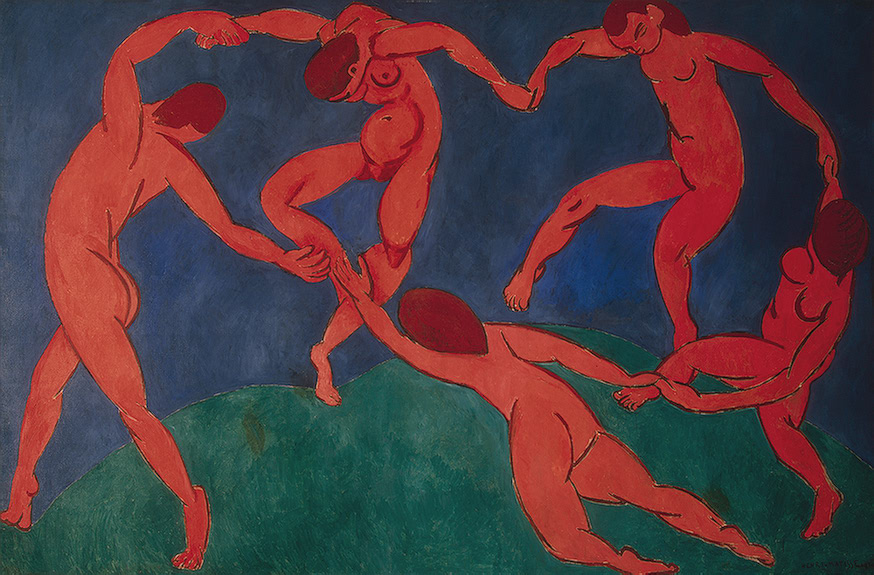
The Dance is a painting made by Henri Matisse in 1910, at the request of Russian businessman and art collector Sergei Shchukin, who bequeathed the large decorative panel to the Hermitage Museum in Saint Petersburg, Russia. The composition of dancing figures is commonly recognized as "a key point of (Matisse's) career and in the development of modern painting".
This painting expresses the artist idyllic fantasy and praise to happy emotions. Matisse referred to the style of primitive dance and depicted 5 young girls who are dancing hand in hand. The Stretched limbs and moving bodies form a vivid and dynamic picture. In terms of colors, Matisse conducted careful research and analysis. Green represents the fresh lawns; blue represents the ocean or the sky; the brilliant vermilion represents the healthy and natural bronze skin of people in the Mediterranean Sea. Theoretically, we feel the warm and bright colors are at the front, while cold and dark colors lie in the back. Therefore, the combination of cold and warm colors gives the picture a sense of and depth and space.
Woman with a Hat
Open Window
The Goldfish
L'Atelier Rouge
The Dessert: Harmony in Red
Joy of Life